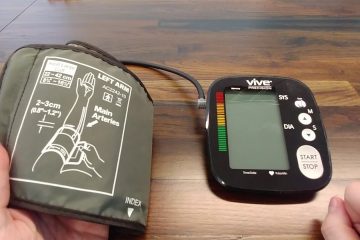4 Things To Consider Before Signing Up For The Highly Beneficial SLIT Treatment Method

For those unfamiliar with the SLIT method, it’s a therapy treatment that administers small doses of what the person is allergic to build up tolerance in time. Sublingual Immunotherapy Training in Seattle, WA, can benefit patients with chronic allergies and all the other health issues caused by it. The therapy uses quickly dissolvable tablets or droplets that can be placed under the tongue and has been proven to be highly beneficial to patients who are sensitive to pollen, dust mites, and the like.
Sublingual Immunotherapy Training in Seattle, WA, can have varying results for different patients, depending upon the intensity of their allergies and overall well-being. Even though Seattle is the least challenging city to live in for those who have seasonal allergies, getting a good ounce of prevention is not always a bad idea. On the contrary, it can be quite comforting once the therapy takes hold. With that being said, consider these things first before booking that first appointment for the sublingual immunotherapy treatment:
- Patients must undergo a blood test or skin testing from a licensed medical professional before being cleared for the SLIT Treatment. The testing clinic must identify what exactly the patient is allergic to. Some are allergic to pollen, which is a common case in Seattle. Some are allergic to dust mites and ragweed. There are several different grass species that patients can be allergic to. After a final evaluation, the doctor will prescribe the treatment and schedule a time frame every day in which the droplets should be taken.
- Most SLIT treatments start a few months before the pollen season, but the month also depends upon what the patients are allergic to. It is recommended that most people start the therapy around January. For those allergic to ragweed, the month of May works best. Those allergic to grass must take it throughout the whole year.
- Patients recently out of dental surgery or have one scheduled in the coming months are advised not to engage in SLIT. Any cuts or injuries in the mouth and gums, especially any form of inflammation or other disorders, can complicate the therapy since the mouth is not fully healed. There’s a slight possibility that the allergen can quickly enter the bloodstream through the injured parts of the oral cavity, rendering the immunotherapy process ineffective.
- Get a written prescription from the doctor detailing the exact administration time and how to handle any issues that can arise during the process. It is crucial that the patient be consistent with their administration and never break from their prescribed routine. During the first few months, the dosage is gradually increased so the patient can build sufficient immunity over time. For the treatment to be effective, patients are expected to continue for a year or two. People with severe allergies require more than a few years.
Patients allergic to two things can receive SLIT for both, although the timings are kept different for the treatment to take hold. If the SLIT is carried out for one allergen in the morning, the other is carried out in the evening. However, tablets can be given about five minutes apart as long as patients don’t have any adverse reactions to them. Sublingual immunotherapy treatment is considered a viable alternative to injection immunotherapy in Seattle and all over the United States.









